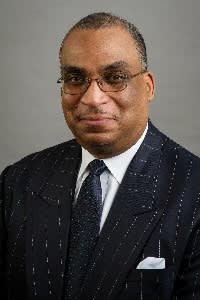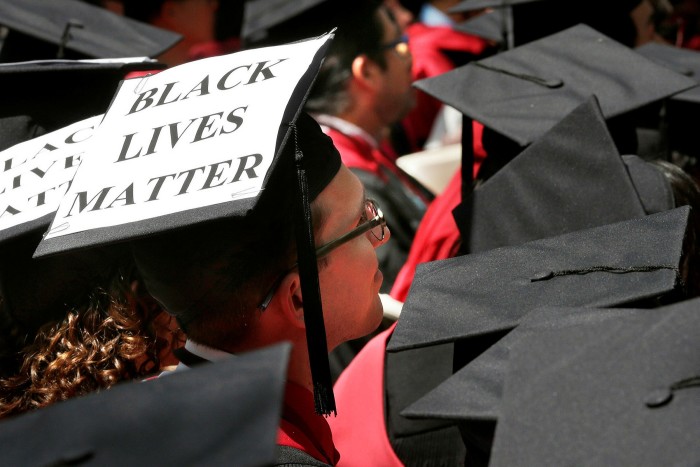Steven Rogers presents a single nuance to his scathing critique of attempts by Harvard Company School and many others to step up their education of black managers in the US: “No school was improved [than Harvard] and all of them have been terrible.”
Rogers quit the Harvard school as a senior lecturer in finance in 2019, right after emotion “heavy disappointment” with the school’s sluggish development on range, and has because taught his very own black organization management and entrepreneurship courses throughout the US.
He would like to see much more outreach and assist programmes at organization schools to support recruit and retain learners and team increased output and use of obligatory circumstance research with black protagonists and — much more radically — immediate financial commitment by university endowments in black-owned firms.

His sentiments replicate broader frustrations by beneath-represented groups searching for obtain to organization instruction: although range is viewed as both of those ethically required and pragmatically critical for company results, the limitations remain important to organization schools stepping up their reaction.
Company schools have designed development in recruiting women school and learners — even if most remain much from reaching gender parity. In the previous decade, the top a hundred FT ranked world wide MBA programmes have greater the proportion of women learners from 30 for each cent to 37 for each cent on normal, and amid school from 24 for each cent to 29 for each cent.
Lots of schools have refreshed their curricula in line with altering societal expectations, with a increased aim on matters such as sustainability. Even so, the report remains patchy on addressing imbalances amid ordinarily excluded groups, such as black learners and school.
Sparked in aspect by the Black Life Issue movement, Harvard Company School very last September disclosed a racial equity action system. It has but to share certain targets, but is preparing to appoint a chief range and inclusion officer alongside thirteen new school, of whom four discover as black or African-American.
The school states every training course in its expected curriculum will use at minimum a single of the sixty teaching circumstance research it has that includes a black protagonist, and it is establishing a technique to monitor new ones beneath growth. It has also launched an elective on scaling minority firms, and options to broaden procurement from black-owned firms.
Harvard is not alone. “We have to have to get the job done on the range of the university student entire body and, after they come in, how to ensure that we have an inclusive atmosphere for them,” states Costis Maglaras, dean of Columbia Company School. “We would like our school, situations, guest speakers and part types to match the demographic of our university student entire body.”
But reform is not simple. A obstacle for organization schools is defining beneath-represented groups for which to boost obtain. For Rogers, author of A Letter to My White Mates and Colleagues, there is little question more than individuals towards whom historic injustices are best.

“As you go from country to country, the problem is whether there is a group of folks that have historically been discriminated towards through colonialism or enslavement,” he states. “In every a single, blacks have seasoned anti-black racism.”
Piet Naudé, dean of the College of Stellenbosch Company School, states his precedence is increased inclusion of South Africa’s black citizens right after a long time of discrimination beneath the apartheid regime. “It is a problem of altering institutional culture absent from the default white, patriarchal posture,” he states.
Joseph Milner, vice-dean for MBA programmes at the Rotman School of Management at the College of Toronto, has broadened this aim to include “people of colour” — such as black Canadians and African-Caribbeans, but also Canada’s indigenous populations, such as the Initially Nations.
He has overseen new scholarships and the appointment of “executives in residence” with varied backgrounds to share their ordeals and give mentoring. But he stresses the hefty legacy of the previous: “First Nations have been aspect of the Canadian colonial experience, and the College of Toronto itself is witnessed as aspect of the colonial venture. There is a heritage,” he states.
Inquiries to world wide organization schools by the FT identified other initiatives. Chinese institutions highlighted representation amid individuals ethnic groups in the country outside of the the vast majority Han population. In India, emphasis is put on obtain to the least expensive Hindu castes.
In the British isles, a single aim is on social mobility, searching for to appeal to individuals from poorer backgrounds. But these measures are generally intended to boost options for much more marginalised British citizens to obtain undergraduate instruction, alternatively than fostering range and affordability on the postgraduate and skilled education courses that commonly cost higher charges.
In France, ESCP Company School has launched Chances Augmentées, a programme aimed at encouraging what it calls a much more varied “social and geographical” selection of candidates for its organization entrance examination.
Elsewhere, some schools highlight guidelines to discover and boost representation amid armed forces veterans, LGBTQ learners, individuals from spiritual minorities, the bodily disabled or individuals who are neurodiverse. One particular school cited “extreme aged age” as an beneath-represented group on its advisory council.
A next problem is measurement itself. Some European organization schools argue that a respect for privateness, improved by the new GDPR legislation, restrictions their capacity to acquire and use monitoring facts. France does not acquire formal studies by race or ethnicity, arguing that such facts could produce discrimination and that all individuals with citizenship are equal beneath the legislation, irrespective of qualifications.
There are also ambiguities in how various groups are labeled. Company schools have diversified their global intakes, interesting to learners from other international locations to produce a increased mix in the classroom. But in the procedure, it gets much more elaborate to assess ethnic qualifications and how much deprived groups are being effectively qualified to promote social mobility.
“It’s almost impossible to pick aside,” says John Colley, affiliate dean at Warwick Company School. “It depends on what an individual chooses to contact by themselves.” He points out that many of his institution’s intake are citizens of Commonwealth international locations, but longtime British isles citizens.
Actions may possibly be sluggish and elaborate to measure, but learners such as Toni Morgan place to development. She states she feels confident learning her EMBA at MIT’s Sloan School of Management, while she is just a single of two black women on her training course. “True range and inclusion is building place for various voices to be heard . . . to feel comfy adequate in your very own pores and skin to contribute to a discussion when you do not feel it will be held towards you.”







More Stories
How to Prevent Workplace Bullying in Your Business
You Probably Don’t Need a New Website
No sales pitch required – The Joy of Business